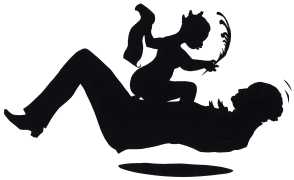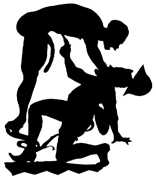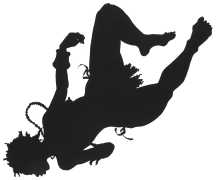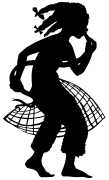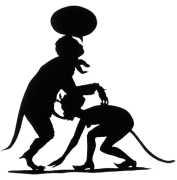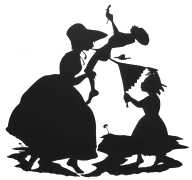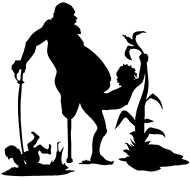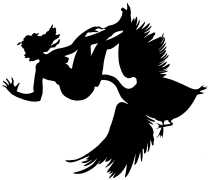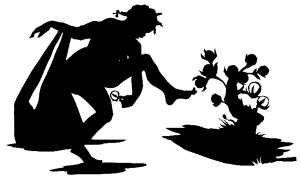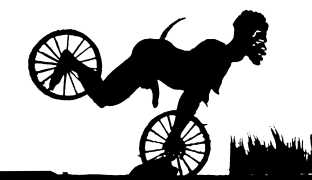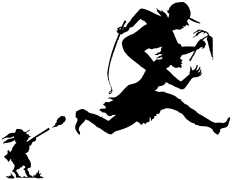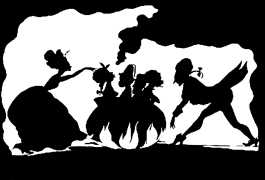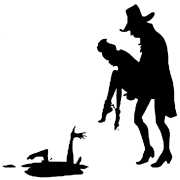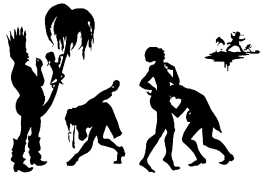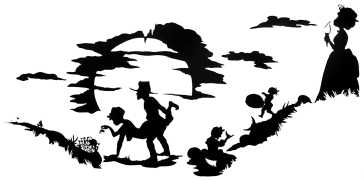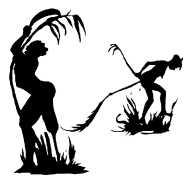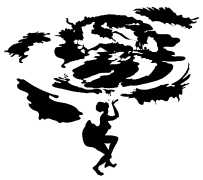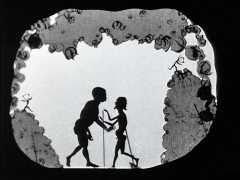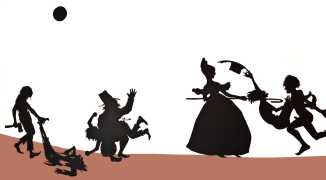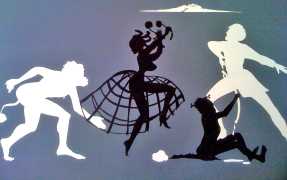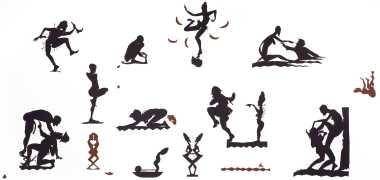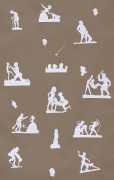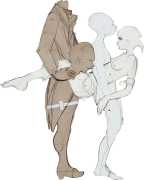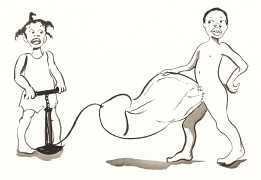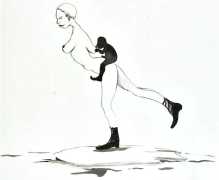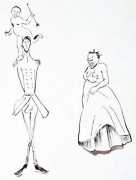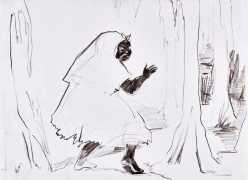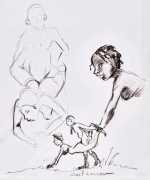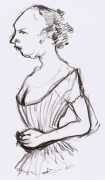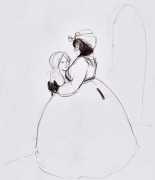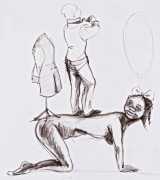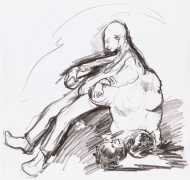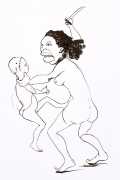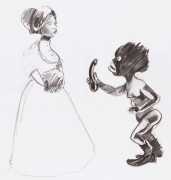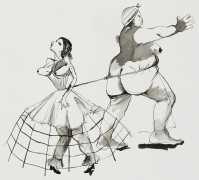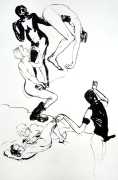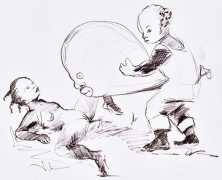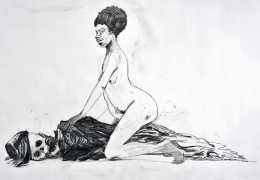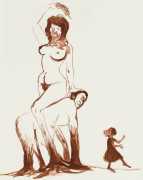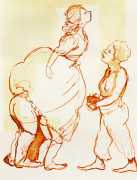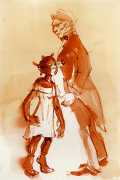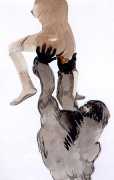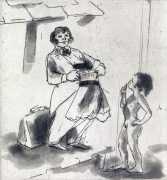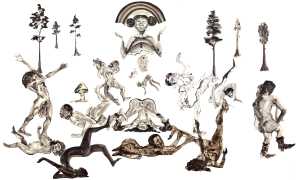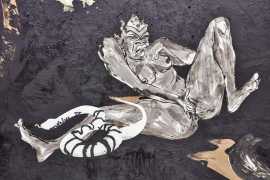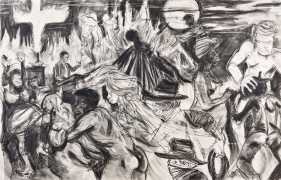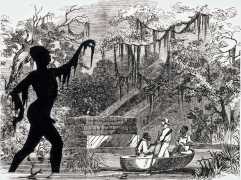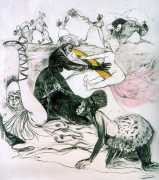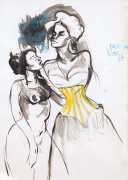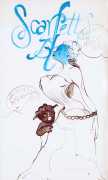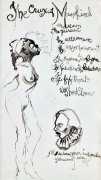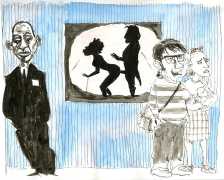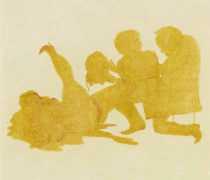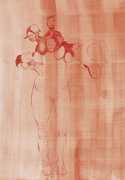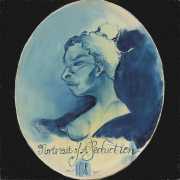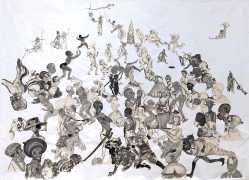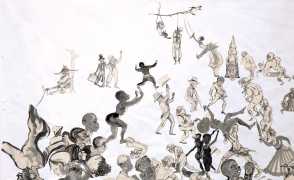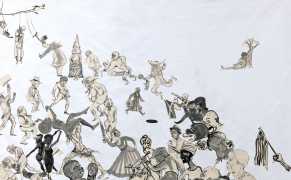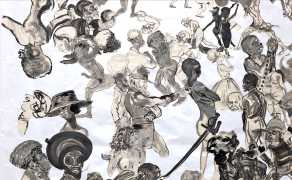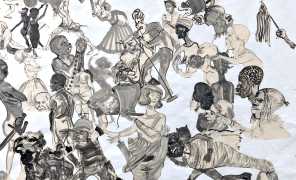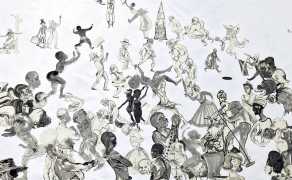 New York-based artist Kara Walker is best known for her candid investigation of race, gender, sexuality and violence, especially involving themes related to slavery. Born in Stockton, California in 1969, Walker was raised in Atlanta, Georgia from the age of thirteen. She studied at the Atlanta College of Art, graduating with a Batchelor of Fine Arts in 1991, and the Rhode Island School of Design, earning a masters degree in 1994.
New York-based artist Kara Walker is best known for her candid investigation of race, gender, sexuality and violence, especially involving themes related to slavery. Born in Stockton, California in 1969, Walker was raised in Atlanta, Georgia from the age of thirteen. She studied at the Atlanta College of Art, graduating with a Batchelor of Fine Arts in 1991, and the Rhode Island School of Design, earning a masters degree in 1994.
In her diverse and experimental art, Kara Walker explores contemporary and historical mythologies of race, gender, sexuality, slavery and violence. She rose to prominence with her darkly funny large-scale drawings and silhouetted depictions of angst and aggression in the Antebellum South.
In the late 1990s, African-American artist Betye Saar called Walker’s work ‘revolting and negative, and a form of betrayal to the slaves’. Saar started a letter-writing campaign and Walker’s work was removed from some spaces; today she might have been what has become known as ‘cancelled’. The controversy died down, and as Walker says: ‘When I had that controversy in my late twenties it was all slower moving. Today things are so different. The whole social media thing today is so vitriolic and heated and feels so violent. I mean cancelling somebody, it’s like murder. Cancelling should be cancelled.’
Walker’s first major exhibition – Kara Walker: My Complement, My Enemy, My Oppressor, My Love – was organised by The Walker Art Center in Minneapolis, where it premiered in February 2007 before traveling to ARC/ Musée d’art moderne de la Ville de Paris, The Whitney Museum of American Art in New York, The Hammer Museum in Los Angeles, and the Museum of Modern Art in Fort Worth.
 In 2014 she unveiled A Subtlety, or the Marvelous Sugar Baby, a 35-by-75-foot sculpture resembling a black ‘mammy’ figure posing as a sphinx and covered in white sugar. Sugar Baby was created and exhibited at the abandoned Domino Sugar refinery in Williamsburg, Brooklyn. Commissioned and presented by Creative Time, the project responded to and reflected on the troubled history of slavery and sugar production, and was visited by more than 20,000 people.
In 2014 she unveiled A Subtlety, or the Marvelous Sugar Baby, a 35-by-75-foot sculpture resembling a black ‘mammy’ figure posing as a sphinx and covered in white sugar. Sugar Baby was created and exhibited at the abandoned Domino Sugar refinery in Williamsburg, Brooklyn. Commissioned and presented by Creative Time, the project responded to and reflected on the troubled history of slavery and sugar production, and was visited by more than 20,000 people.
 In 2019 Kara Walker was commissioned by London’s Tate Gallery to produce a monumental sculpture to be placed in the cavernous Turbine Hall. ‘The Turbine Hall is like a grand prize,’ said Walker. ‘You’ve been offered this gargantuan space and it’s all yours. It’s irresistible.’ The first black woman to be offered such a commission, she followed in the footsteps of such artists as Ai Weiwei, who filled the hall with porcelain sunflower seeds in 2008, and Carsten Holler, whose spiralling slides scared critics in 2006.
In 2019 Kara Walker was commissioned by London’s Tate Gallery to produce a monumental sculpture to be placed in the cavernous Turbine Hall. ‘The Turbine Hall is like a grand prize,’ said Walker. ‘You’ve been offered this gargantuan space and it’s all yours. It’s irresistible.’ The first black woman to be offered such a commission, she followed in the footsteps of such artists as Ai Weiwei, who filled the hall with porcelain sunflower seeds in 2008, and Carsten Holler, whose spiralling slides scared critics in 2006.
As Walker explains, ‘The Fons Americanus is an allegory of the Black Atlantic, and really all global waters which disastrously connect Africa to America, Europe, and economic prosperity. The sweeping work is inspired by the Queen Victoria Memorial fountain that stands outside Buckingham Palace, but it aims to tell a different, more inclusive version of the violent history of the British Empire and the role that stolen goods from Africa played in funding the monument.’ Symbolically, the fountain gushed water from the breasts and wounded neck of the woman at the fountain’s summit.
On the subject of slavery and caricatures, Walker says ‘I think what’s interesting – and maybe a little bit of the trap that I set for myself – is I didn’t want to be making work about slavery. But the only thing people want to hear from me is about slavery because, apparently, the only thing I am is black. So I said I’m gonna take everything I do about power and desire – and use the tropes of the slave narrative or the slave romance, like the Antebellum romance, as the way to talk about these themes, because this is something that clearly won’t go away. It will just keep being an unaddressed bugaboo in American culture.’
Kara Walker’s website can be found here.
We are very grateful to our Russian friend Yuri for suggesting the inclusion of this artist, and for supplying many of the images.





